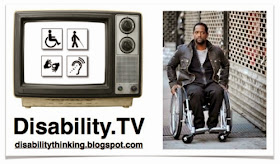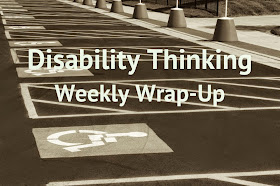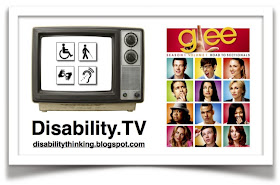 It's mid-term election time here in the USA. All seats in the House of Representatives are open. A third of the Senate seats are open. Plus, there are legislative and executive elections (judicial, too in some places), in states, counties, and municipalities all over the country.
It's mid-term election time here in the USA. All seats in the House of Representatives are open. A third of the Senate seats are open. Plus, there are legislative and executive elections (judicial, too in some places), in states, counties, and municipalities all over the country.
Apart from the usual angst about "negative campaigning" and "partisanship", the most frustrating aspect of mid-term elections is that voter turnout is always much lower than years when the President is up for election. Yet, electing Members of Congress is probably more important, not less.
Another sad fact is that disabled people still vote at a lower rate than most other constituencies. A lot of that is due to inaccessible polling places. I suspect the new wave of Voter ID laws will have a negative effect as well. I also believe that too few disabled people can easily identify how their disability experience translates into meaningful policy issues and, therefore, votes. The other side of that coin is that few candidates are ever challenged to come up with thoughtful, specific positions on disability issues. Nobody asks, so they don't have to think about it.
So, how about we ask? Here are some ideas that should be relevant enough no matter where in the U.S. you happen to live.
Ask candidates running for the House or Senate:
"What is your position on Sheltered Workshops?"
"What is your position on paying some disabled workers less than Minimum Wage?”
Ask candidates for state office (legislator, governor):
"Do you know this state’s current percentage of disabled students in regular classrooms vs. the percentage in separate classes? What would you do to improve these numbers?"
Ask a similar question about Long Term Care in your state ...
"What percentage of nursing home eligible people are in nursing homes vs. the percentage getting support services in their own homes? What would you do to improve these numbers?"
Ask candidates for local office (county legislators, town or city councils, mayors, commissioners, etc):
"What can local / municipal government do to improve accessibility throughout neighborhoods, villages, towns, and cities?"
"What role do you think local government should play in meeting the needs of elderly and disabled citizens?"
Other issues you might want to bring up as partly disability issues:
Street and sidewalk maintenance, including snow removal where applicable.
Public transit and regulation of taxi companies.
Any well-known accessibility problems at major public facilities in your area.
Any proposed new nursing homes or sheltered workshop facilities.
Ask how “Community Development” programs are addressing accessibility issues.
If your state hasn’t done so already, ask about whether candidates would support Medicaid expansion under the Affordable Care Act, which can help many disabled people access vital services they have previously been denied because they just miss income qualifications.
When you ask questions about disability issues, don’t let on upfront what you think about them. It is important for candidates to know that, “I support the disabled” isn’t a position. Elected officials should learn enough about disability issues to have specific opinions about them. But again, they won’t unless we insist on it.























